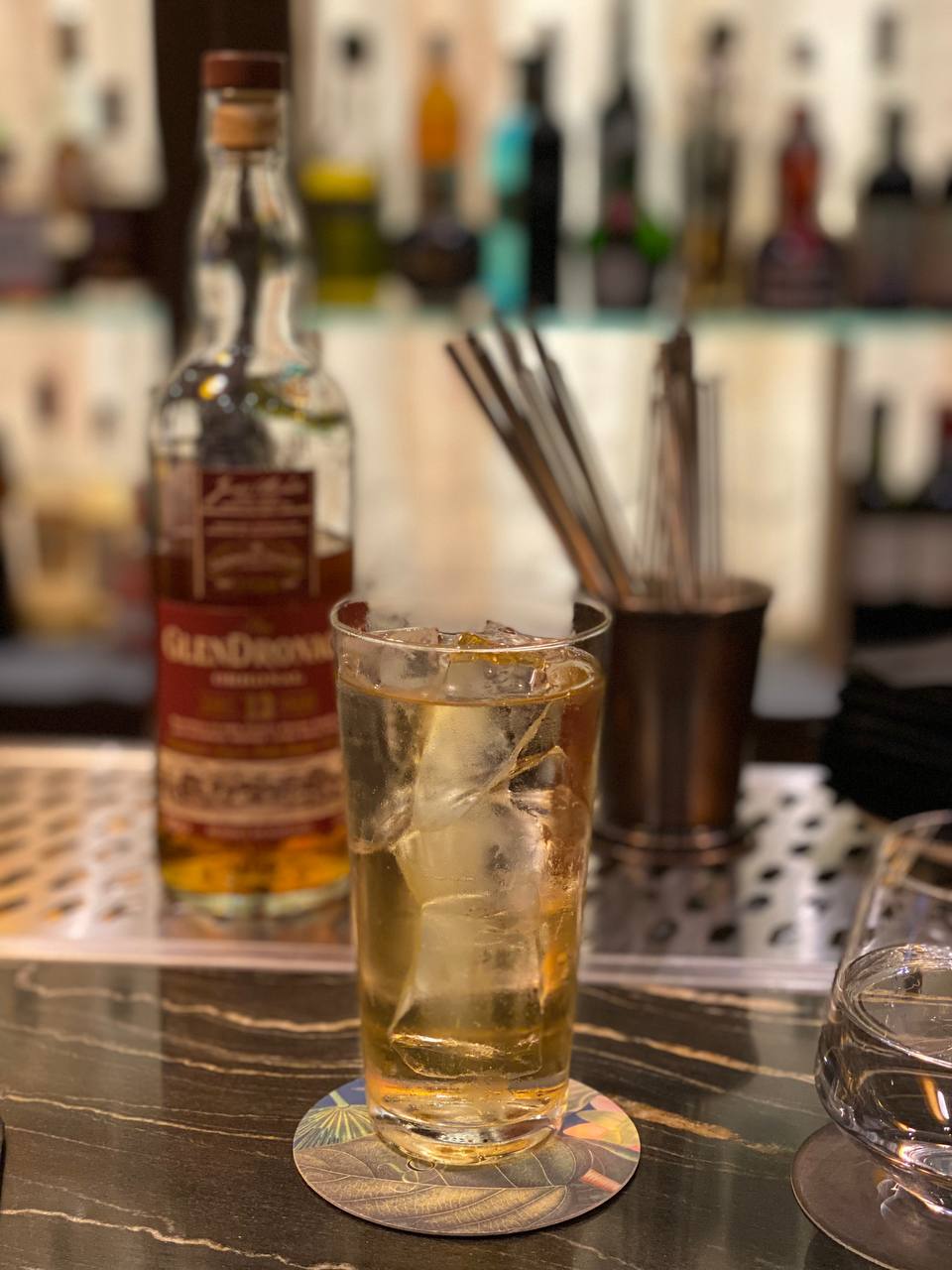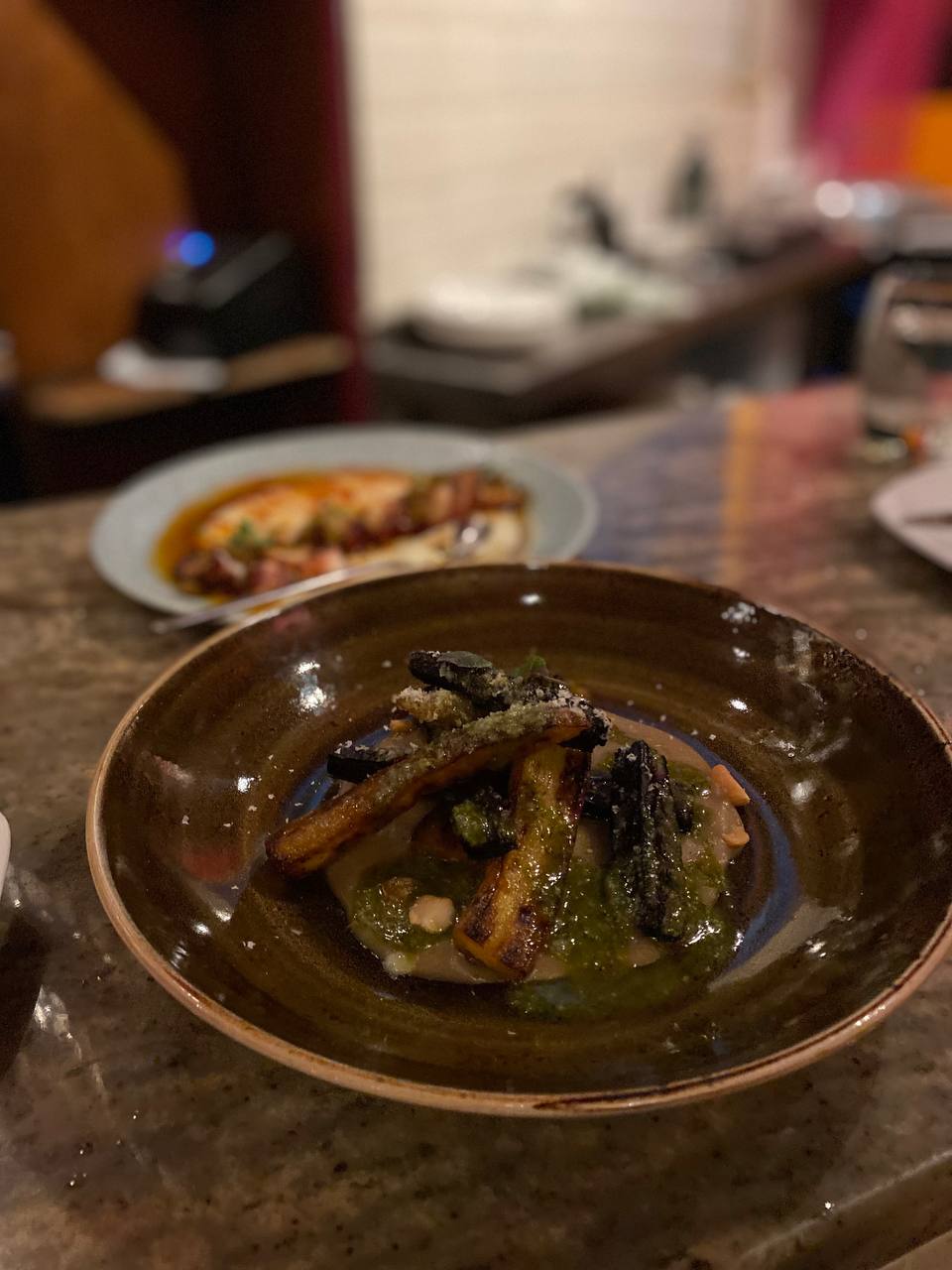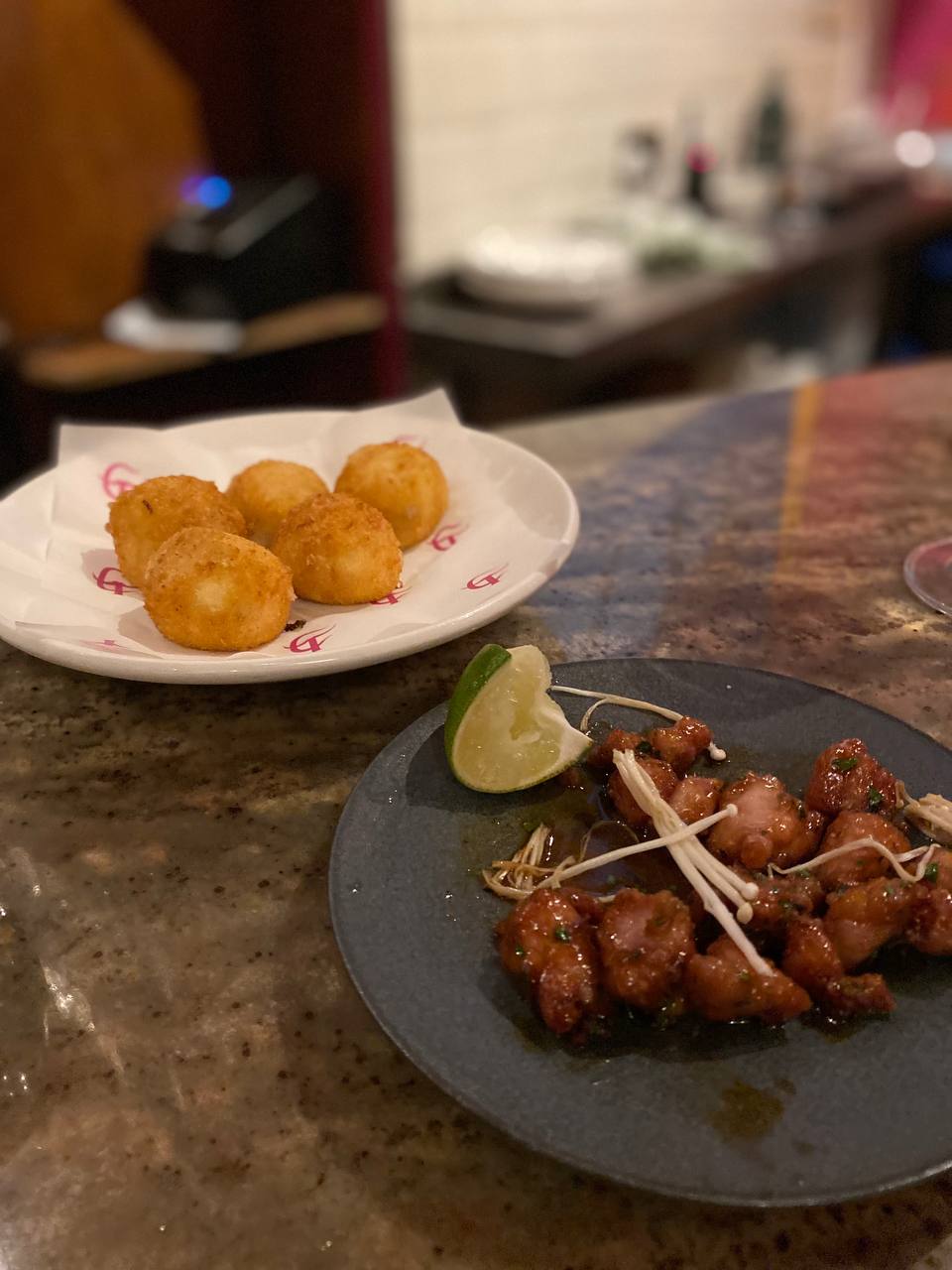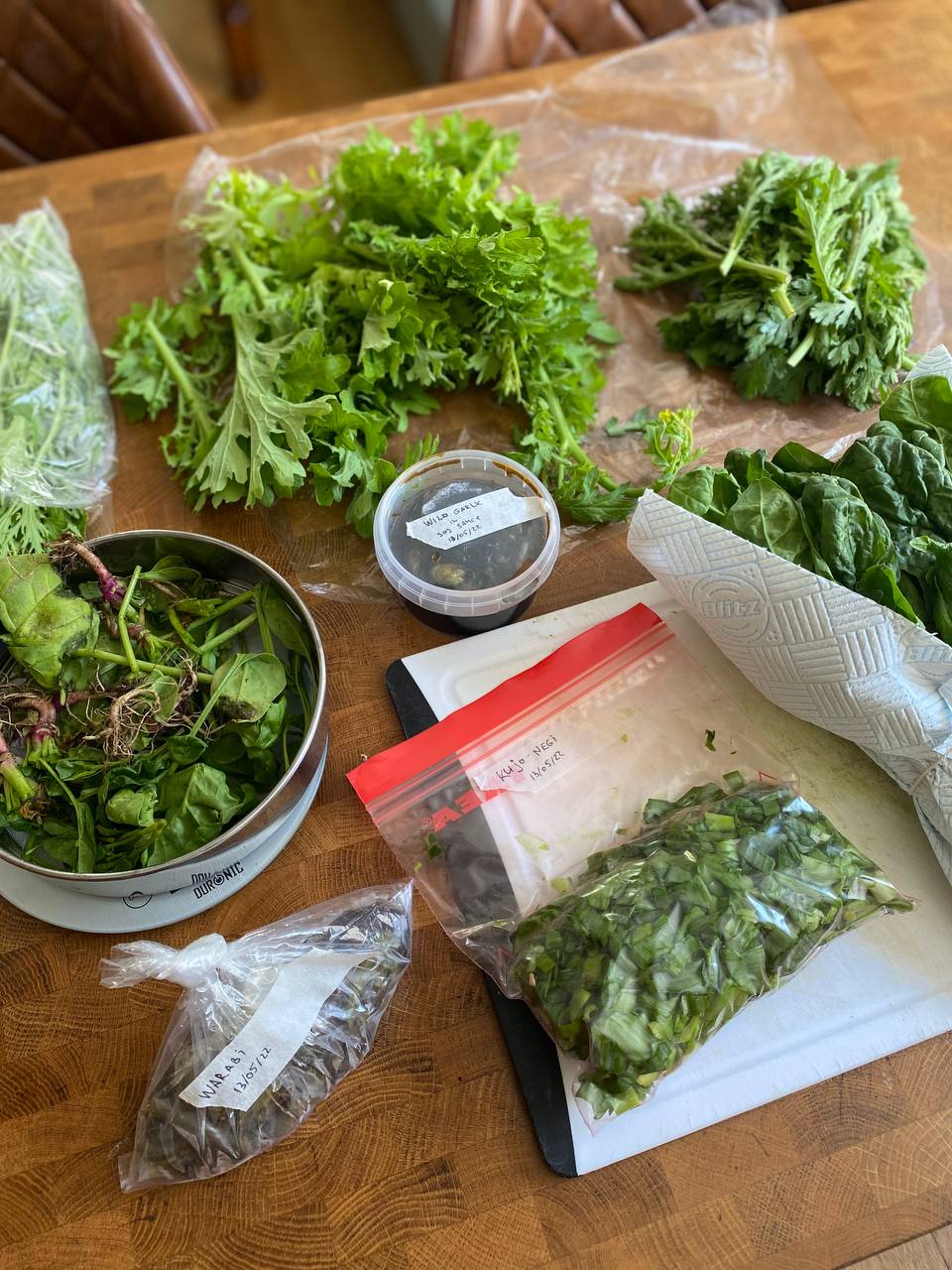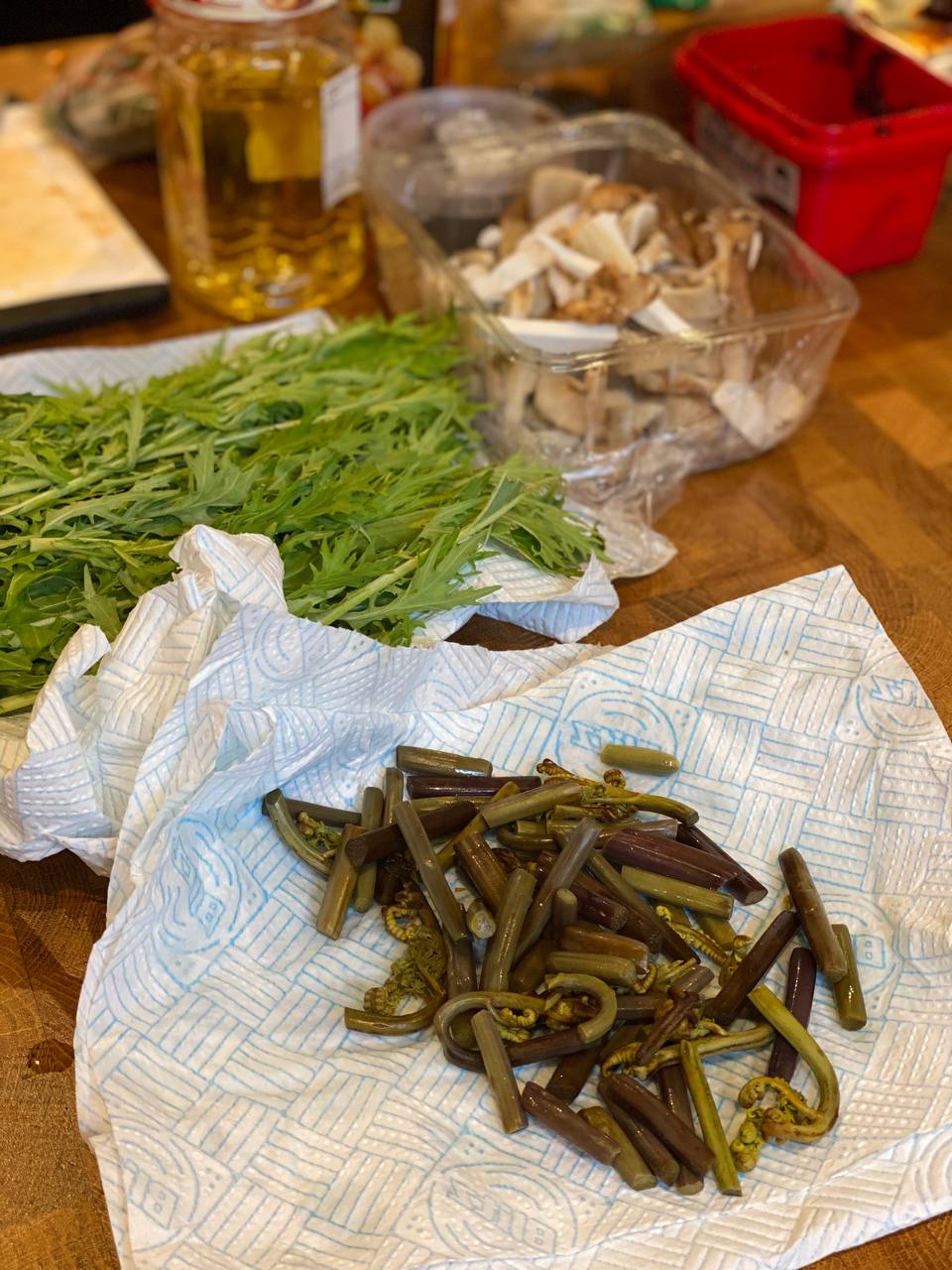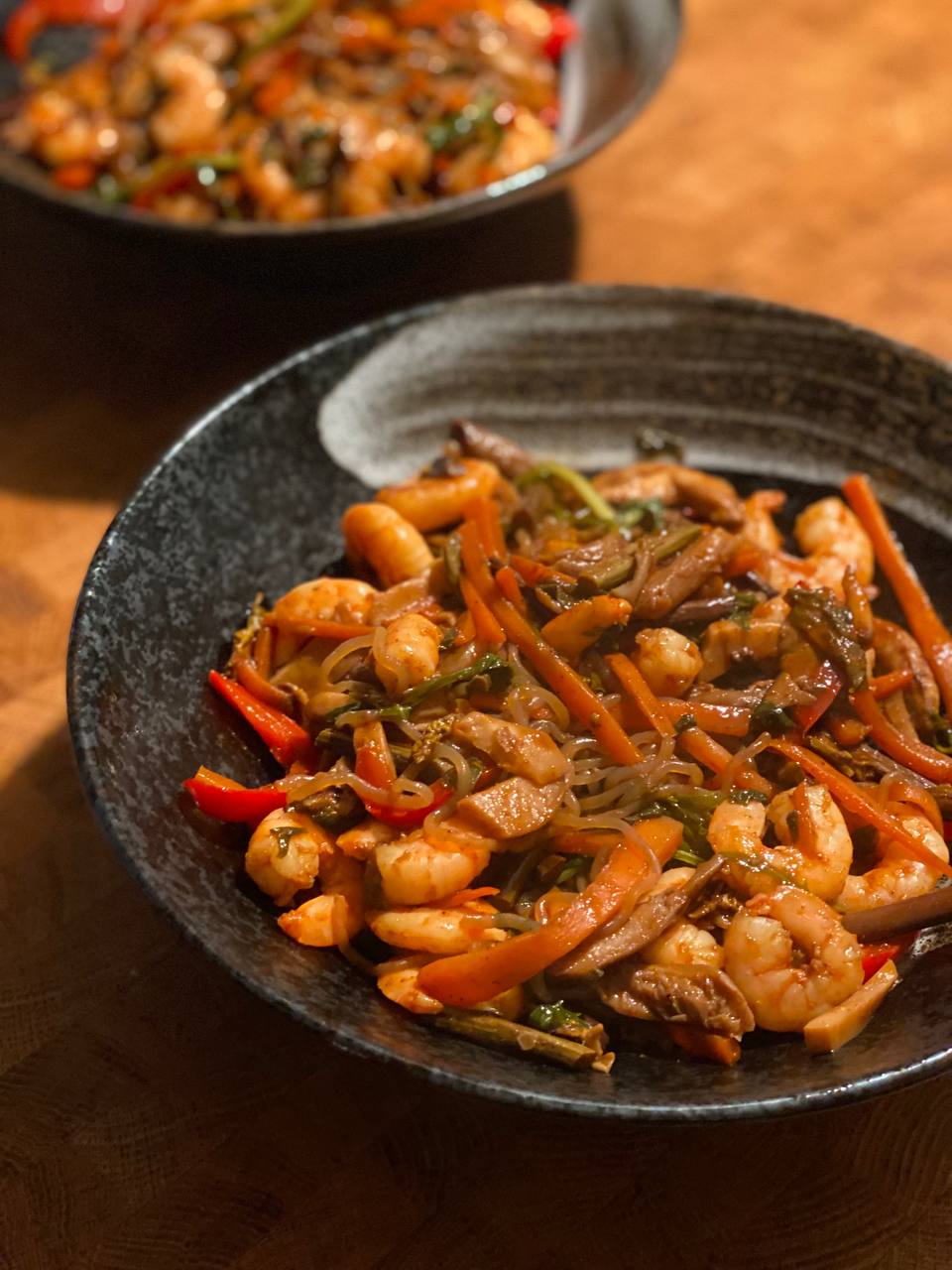I still have a plenty of herbs left though, so probably will look into pesto recipes in the meantime.
Things I enjoyed reading
For nearly six months I've been getting ready for summer (which is here in the UK starts quite late), and a part of the experience includes counting all calories I consume, so I definitely relate to this great and very detailed post on mistakes we make when trying to loose weight:
It might not be as simple as calories in versus calories out, but calorie awareness is still our best defence against an obesogenic environment that encourages us to overeat.
Calorie tracking is a life skill that will eventually lead you to understand portion sizes, what an actual serving size of meals at your favourite restaurants looks like. You’ll soon be able to ‘eyeball’ or ‘guestimate’ calorie count of foods without having to track. But you have to start with the basics first.
My biggest suprise was the amount of calories in a single tub of Pringles. I could have two of these during a long movie, but that is apparently ~ 2000 calories (510/100 g), so I had to pretty much quit them completely.
A much needed essay on finding the bravery to sunset projects when they are not of use anymore.
I looked around for a new replacement service but the ecosystem change quite a bit since 2017, there are new train and transport companies with better services that I could deliver. They also had ownership on their data and make a business from iti, something I couldn’t do.
In short, my app was no longer needed: it fulfill its purpose for a while until it didn’t anymore. The same week they terminated their service, I sunset the project remove it from the App Store.
I have a few apps in App Store that weren't updated for ages. Some of them were probably unlisted by Apple for inactivity, but some might still be out there, and while they wouldn't even benefit to my CV much, there is something that stops me from terminating them completely.
Probably it's time to reconsider that.
And back to my favourite media format out there: interactive explanations of paintings to folks who have no art education (like myself):
There are also little peppercorns, rolled in an almanac page and spilling out onto the plate. In the 1630s, this was quite the extravagance. The Dutch today still express sticker shock with the word “peperduur” — as expensive as pepper.
The quote obviously can't do it any justice, and the experience is way better when previewed from a desktop.
An interesting summary of a research into ways people react to free stuff:
According to the 2019 Walker Sands Future of Retail Survey, 77% of 1.6k respondents said free shipping had made them more likely to buy an item online, ranking far above inducements like same-day shipping or the ability to visualize products in 3D.
[...]
The consumers he studied preferred to save $6.99 and get free shipping, versus saving $10 on the purchase price but still pay for shipping, even though the savings would have been greater.
While I would probably err on the total price rather than a benefit of a free shipping, I would definitely change my mind when presented with an opportunity to receive something the same day or as soon as possible, rather than to wait for a month to get a slightly cheaper alternative.
I enjoy thought-through arguments for continuing education in CS or software engineering: mostly because I would never do it myself (albeit I might change my mind for the right major, i.e something very food-related):
I’ll also say that the best graduate school for computer science is not necessarily the best graduate school to get a master’s degree. A master’s degree is probably most useful for a professional career, and thus you’d concentrate on technologies that are in more common use, and also on engineering practices like quality assurance or requirements management.
That being said, seems like in the last few years the amount of universities willing to accept remote students increased tremendously, which is definitely great.
A pretty much an ode to a language I happen to hear live occasionally, but never thought of learning myself (despite coming from a place where Hungarian predecessors used to live).
He heard me out politely enough, but I wondered afterwards how much I had managed to explain. Then, a few months later, I read a report of an interview with Joe in the Hungarian-language weekly, Magyar Élet. The interviewer, Livia Bagin, at one point asked Joe about the Australian writer who was learning Hungarian from him. Joe spoke briefly about me and then, in one neat Hungarian sentence, reported what must have seemed to him the best summary of all he had heard from me about my reasons for making an old, Asian tongue my second language.
#Azt mondja, hogy az angyalok a mennyországban magyarul beszélnek.
He says that the angels in heaven speak Hungarian.
This one article probably wouldn't change the languages I want to learn first (that is, Italian and Hebrew), but might actually influence the next ones.
This story is nearly five years old, so the world has changed quite a bit, and yet this industry didn't change much: neither the startups, nor the consumers:
The far bigger, high-stakes Affirm innovation is its proprietary consumer risk-assessment scoring, or underwriting system. Without the fees that make upward of half of some credit card companies’ revenue streams, Affirm has to make up ground with volume. The company proudly lends to consumers who the larger market and traditional credit reporting standards would define as subprime, but its default rate is “well below the industry average,” says Metcalf. Affirm is heavily incentivized to find those good customers, bad FICO score or not. And it does so by compiling a broader, more complex, and ever-shifting set of details about every loan applicant.
We closer we are to Metaverse, the more attention will be payed to the field of verifying one's identity and assessing related risks, so that's the one to watch out for.
These days I mostly interview others rather than get interviewed myself, so reading about folks' experience is rather insightful, especially when it's so up-to-date:
While I was still in the process of interviewing, I made a point of challenging it and asking whether it was representative of the role, to which they said no, and I was a bit like, well why do it then? 🤷 It's also one of those things that I'd argue is less important, because you may be pre-optimising a solution that may be used for a proof of concept and then be rewritten, or you can learn through production metrics or performance testing that the area of the codebase isn't ideal.
I do ask about the Big O notation myself, although usually only if a candidate mentions some related experience in their CV (e.g by listing a bunch of Coursera certificates). It never leads to a rejection though, just gets mentioned as a yet another factor.
As OnlyFans is only getting more and more popular, there is no lack of high-quality longreads coming up pretty much monthly. This one is about the whole industry aimed at lonely people behind the other side of the paywall:
“An 18-year-old girl, she texts different than a 25-year-old girl, you know, or an older lady,” he explained. “An older lady won’t use emojis; she’ll use, like, a semicolon and parentheses for a winky face, when a younger girl will actually use a winky emoji.”
He pulled up a page with a young model wearing pink-striped thigh-high socks, opened a chat with a subscriber and typed out: “Heyy daddy !”
“You see how there’s a space before the exclamation mark?” he said. “Yeah, that’s how 18-year-olds type.” When it comes to sales, Rosero said, those details make all the difference.
So if someone is chatting with a model, the chances are the "model" is actually a dude with a bunch of open chat tabs (because dudes understand other dudes better, apparently).
While I can easily see a reason behind paying $50 for a set of cuttlery for one, I tend to agree with the author here: overconsuming of material goods is not as beneficial to one's life as it is often promoted.
Those five “instruments” are $50. Fifty dollars for a single fork, knife, and spoon (the smaller items are a salad fork and tea spoon — and I’m sure it would be strictly bush league to use them for any other purpose). Is the kitchen drawer that Dustin keeps these vessels in also the very best of its kind? We’re left to wonder, but presumably so.
Functional things are way better. There is nothing wrong in updating them for a better versions eventually, but these upgrades need to be driven by function rather than the concept of it.
Things I didn't know last Tuesday
Rösti are like hashbrowns but for Swedish German-speaking folks. Graben is a ditch. Röstigraben split the country into two parts based on the way they cook those hashbrowns:
Röstigraben is a term used to refer to the cultural boundary between German-speaking and French-speaking parts of Switzerland, the latter known in French as the Suisse-Romande. There is also a term Polentagraben which refers to the boundary between German-speaking cantons and the Italian-speaking canton of Ticino.
| 